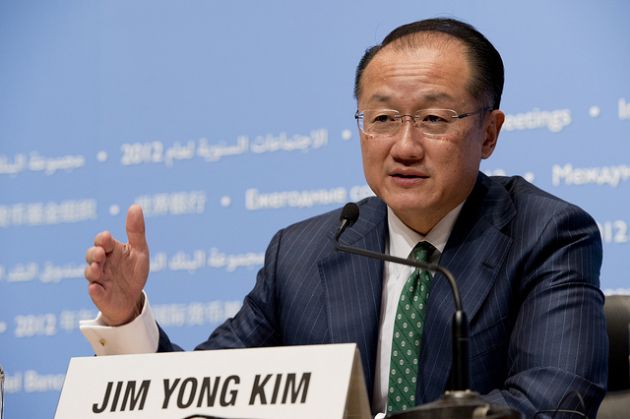Faith leaders join World Bank in call to end extreme poverty by 2030

The World Council of Churches has joined more than 30 leaders from major world religions in launching a call to action to end extreme poverty by 2030, a goal shared with the World Bank Group.
"As leaders from diverse religious traditions, we share a compelling vision to end extreme poverty by the year 2030," they said thew WCC said in a statement.
"For the first time in human history, we can do more than simply envision a world free of extreme poverty; we can make it a reality."
World Bank Group President Jim Yong Kim said, "These commitments from religious leaders come at just the right time – their actions can help hundreds of millions of people lift themselves out of poverty."
The statement titled Ending Extreme Poverty: A Moral and Spiritual Imperative notes that remarkable progress has been made in reducing extreme poverty.
The April 9 announcement from global faith leaders arose from the World Bank's "Faith Based and Religious Leaders Roundtable" held on 18 February.
It was the first high-level meeting between World Bank Group President Jim Yong Kim and faith leaders.
They note that over 25 years the world has gone from nearly 2 billion people to fewer than 1 billion living in extreme poverty.
Now, for the first time in human history there exists both the capacity and recognition of the moral responsibility to ensure that no one has to live in extreme poverty's grip.
The faith leaders and the World Bank say, "Accomplishing this goal will take two commitments: to act guided by the best evidence of what works and what doesn't; and to use our voices to compel and challenge others to join us in this urgent cause inspired by our deepest spiritual values.
MORAL IMPERATIVE
"We have ample evidence from the World Bank Group and others showing that we can now end extreme poverty within 15 years," the Moral Imperative statement notes.
"In 2015, our governments will be deciding upon a new global sustainable development agenda that has the potential to build on our shared values to finish the urgent task of ending extreme poverty."
They say the faith community embraces "this moral imperative" due to sharing the belief that society's moral test is how the weakest and most vulnerable fare.
"Our sacred texts also call us to combat injustice and uplift the poorest in our midst."
The aim of the leaders is to generate the necessary social and political will by inspiring greater commitments from others to join in this cause.
They aim to tapping into many of the shared convictions and beliefs that unite the world's major religions around the call to combat poverty.
Rev. Olav Fykse Tveit, general secretary of the WCC, said that, "For still far too many of the world's people there can be no justice and peace without an end to the poverty that afflicts them and their communities."
The WCC will work with other faith-based and intergovernmental partners "to challenge economic injustice, and unsustainable consumption of the majority of the world's resources by a privileged minority."
Ruth Messinger, president of American Jewish World Service (AJWS), said, "Rooted in Jewish values and Jewish historical experience, we are committed to realizing human rights and ending poverty in the developing world."
David Beckmann, president of Bread for the World, noted, "The unprecedented progress that the world is making against hunger and poverty is an example of our loving God moving in the contemporary world, and God is inviting us all to get with the program."
The World Bank's Kim responded to the launch of the moral imperative, stating, "Faith leaders and the World Bank Group share a common goal – to realize a world free of extreme poverty in just 15 years.
"The moral imperative can help drive the movement to end poverty by 2030 by inspiring large communities to act now and to advocate for governments to do the same."
